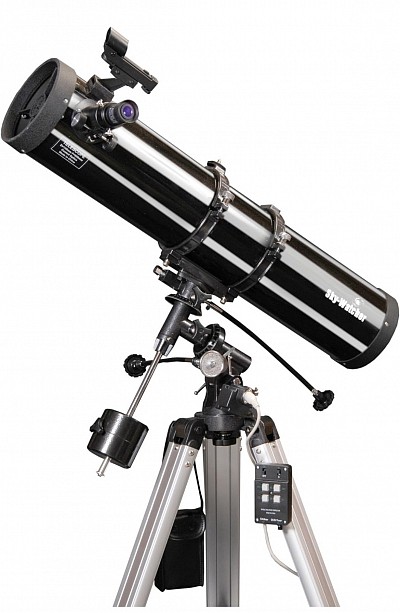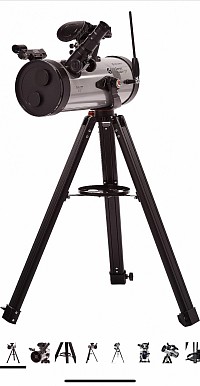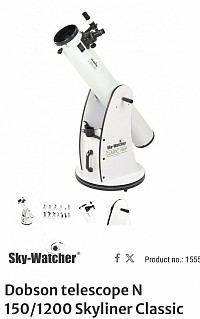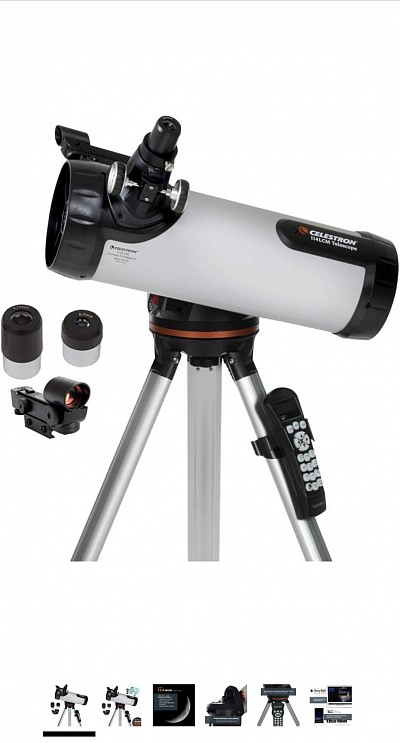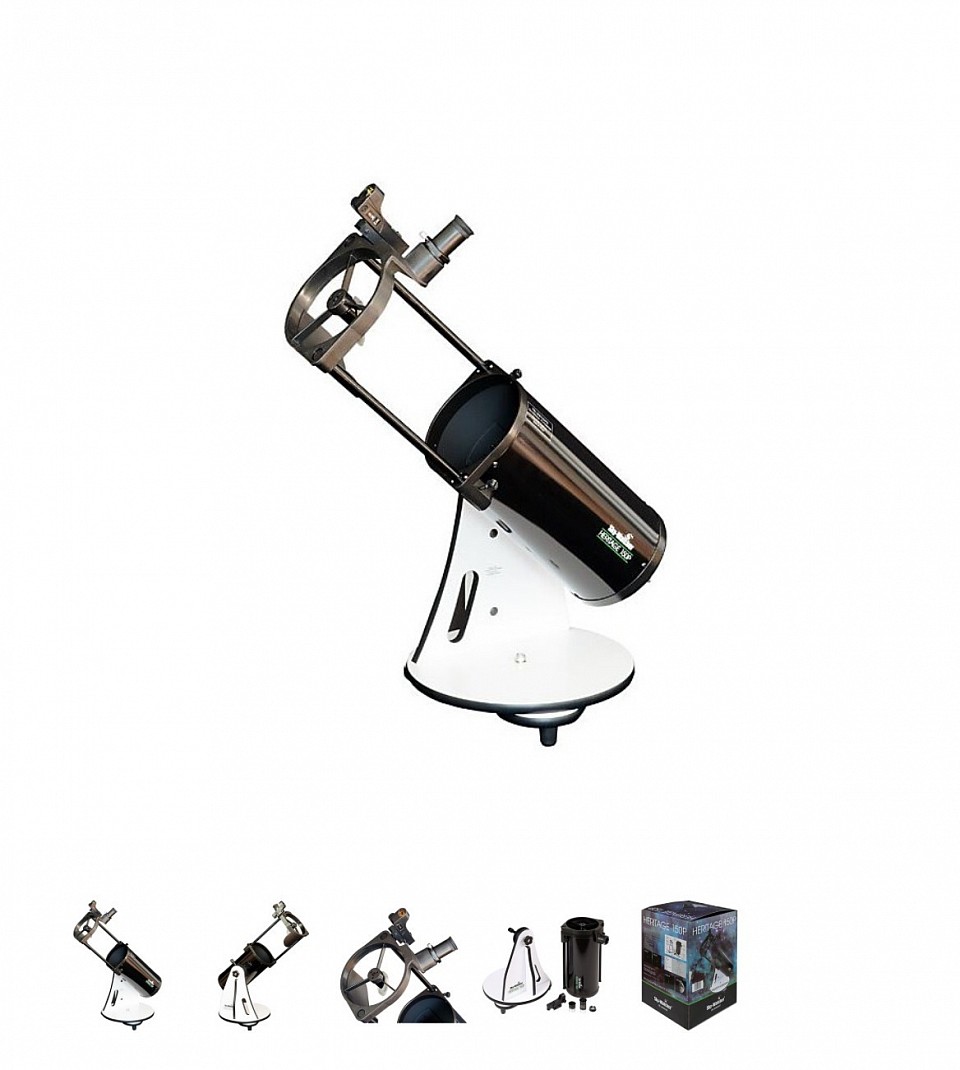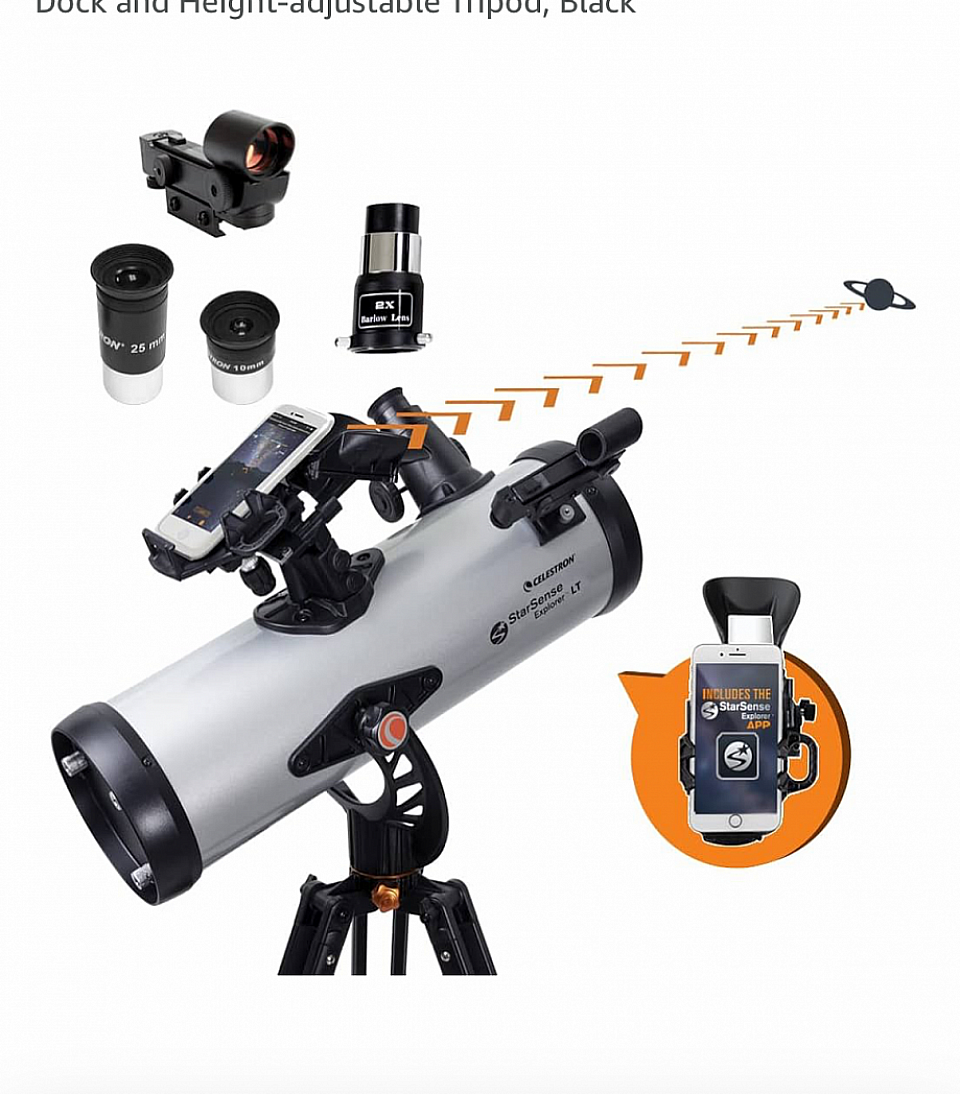Best Telescopes for Beginners (£250–£350 UK) – 2025 Guide
🔭 SkyWatcher Explorer 130M Top Performer Under £300
The SkyWatcher Explorer 130M
A brilliant all-rounder for beginners ready to dive deeper into astronomy. The SkyWatcher Explorer 130M offers a 130mm parabolic mirror, motorized tracking, and sharp image quality that rivals pricier models. Whether you’re observing Saturn’s rings or distant galaxies, this scope delivers clarity and ease of use at a very reasonable price.
- Type: Newtonian Reflector
- Mount: EQ2 with motor drive
- Aperture: 130mm
Focal Length: 900mm
- Best for: Lunar, planetary & deep-sky observation
- User Level: Beginner to intermediate
Value for Money: ⭐⭐⭐⭐⭐ (5/5)
Overall Rating: ⭐⭐⭐⭐½ (4.6/5)
At the moment Astroshop are doing a better deal than Amazon!
Celestron 22453 StarSense Explore LT127AZ
Uses your phone’s GPS and camera to guide your viewing
- Lightweight and beginner-friendly
- Slightly smaller aperture but easy to carry and operate
🔗 [Check Price on Amazon / Celestron UK]
🔭 Sky-Watcher 6” Classic Dob
A true classic. This 6-inch Dobsonian is simple, sturdy, and powerful — great for serious lunar and deep sky observing.
🔭 Visit our sales section for more info on this telescope
Or
Visit Astroshop
Affordable reflectors and Dobsonians that offer a big upgrade from entry-level scopes.
In this budget range, you’re getting access to powerful, easy-to-use reflectors that offer a major step up from basic beginner gear.
These scopes are perfect for viewing the Moon in detail, exploring Saturn’s rings, Jupiter’s moons, and even catching a glimpse of brighter deep sky objects like the Orion Nebula or Andromeda Galaxy — especially from a dark site.
Most models in this range are compact and simple to set up, making them ideal for garden observing or taking on trips. You’ll find great value here if you’re looking for something that balances affordability with serious stargazing potential.
💡 Tip: The AWB OneSky and Sky-Watcher Heritage 130P are the same scope under different names. OneSky supports a great cause too — win-win.
_________________________________________🔭 Celestron 31150 LCM 114 Series Computerised Stargazing on a Budget
The Celestron 31150 LCM 114 Series
An ideal first scope for beginners under £300, with motorised tracking for effortless sky exploration.
⭐ Why It Stands Out:
- Motorised GoTo Mount: Automatically tracks objects across the night sky
- Reflector Design: Captures more light for brighter, clearer views
- SkyAlign Technology: Aligns in minutes with just three stars
Explore Planets & Deep Sky: View Saturn’s rings, nebulae, and distant galaxies
✅ Beginners who want tech-assisted stargazing.
✅ Users looking for more than a manual telescope.
✅ Anyone wanting to learn the night sky faster.
Value for Money: ⭐️⭐️⭐️⭐️ ☆ (4.5/5)
Overall Rating: ⭐️⭐️⭐️⭐️ ☆ (4.2/5)
- 🎯 View Price on Astroshop ➡️
- 🎯 View Price on Amazon ➡️
🔭 Sky-Watcher Heritage 150P
150mm aperture — biggest in this price range
Excellent for deep sky objects and sharp planetary views
Easy to carry and set up anywhere
🔗 Check price on Astroshop ➡️
🔭 Celestron StarSense Explorer 114mm
Smartphone-assisted object finding system
Great for beginners who want tech help
Slightly smaller aperture, but intuitive and modern
🔗 Check price on Amazon ➡️
❓ Frequently Asked Questions – Telescopes £250–£350
Q: What makes a telescope in the £250–£350 range better than cheaper models?
A: In this price bracket, you’re getting noticeably more light-gathering power and better build quality. These scopes can show you sharper details on the Moon and planets, and start to reveal deep sky objects like nebulae and galaxies — especially under dark skies.
Q: What makes a telescope in the £250–£350 range better than cheaper models?
A: In this price bracket, you’re getting noticeably more light-gathering power and better build quality. These scopes can show you sharper details on the Moon and planets, and start to reveal deep sky objects like nebulae and galaxies — especially under dark skies.
Q: Are these telescopes suitable for complete beginners?
A: Absolutely. Most of the models in this range are designed with beginners in mind — simple setup, no complex electronics, and forgiving optics. They’re perfect if you want a no-fuss way to start exploring the night sky with serious results.
Q: Do I need to buy anything extra with these telescopes?
A: Most come with everything you need to get started — including eyepieces and a finder scope. But over time, you might want to add a Moon filter, a better quality eyepiece, or even a phone adapter for taking basic astrophotos.
Q: Can I use these telescopes from my garden or balcony?
A: Yes, they’re ideal for back garden observing. Light pollution might limit what you see, but planets and the Moon will still look great. If you can get to a dark sky site, you’ll unlock the full potential of these scopes.
Q: What’s the best telescope in this range?
A: It depends on your goals. The Zhumell Z130 is a great all-rounder, the Sky-Watcher Heritage 150P offers the most aperture (more detail), and the AWB OneSky supports a good cause while offering excellent optics. For tech lovers, the Celestron StarSense Explorer 114mm adds smartphone-based navigation.
Q: Will I outgrow a scope in this price range?
A: Possibly, but many stargazers keep these scopes as grab-and-go options even after upgrading. They’re a great way to learn the sky and get serious without spending too much upfront.

